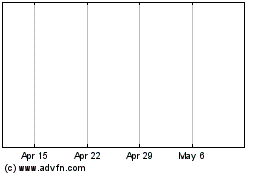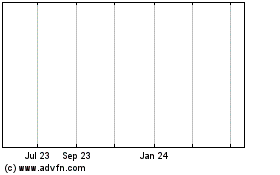AIG, Berkshire Hathaway Strike Reinsurance Pact -- 2nd Update
January 20 2017 - 4:49PM
Dow Jones News
By Leslie Scism and Nicole Friedman
American International Group Inc. said it would pay Warren
Buffett's Berkshire Hathaway Inc. roughly $10 billion to take
responsibility for some AIG insurance claims if they run
unexpectedly high, one of the largest-ever pacts of its kind.
The reinsurance agreement, which covers past losses whose final
costs aren't yet known, applies to $34 billion in AIG's U.S.
liability-insurance reserves. Berkshire will be able to invest the
$10 billion until it is needed to pay claims.
For AIG, the deal is part of a larger effort to streamline its
operations and improve results in the face of pressure from
billionaire investors Carl Icahn and John Paulson.
For Berkshire, the transaction adds to the company's "float,"
the insurance premiums that it holds and invests until the money is
used to pay policyholders. Berkshire has long relied on large
reinsurance deals to generate cash that it can use to invest, and
Ajit Jain, Mr. Buffett's longtime insurance lieutenant, has a
reputation for taking on large liabilities that others wouldn't
consider. Berkshire's float stood at $91 billion on Sept. 30.
The deal brings together two companies that have vied for
executives and customers in recent years, as low reinsurance prices
pushed Berkshire into commercial insurance and in direct
competition with AIG in some areas. But few companies besides
Berkshire, if any, have the scale to do a deal of this kind
alone.
The pact with Berkshire covers just under half of the overall
property-casualty claims reserves on AIG's books as of last year.
AIG is betting that eventually claims will exceed $34 billion, the
amount it has set aside for payouts covered by the transaction.
"The net result is a positive and decisive step that gives us
greater certainty and frees up additional risk capacity to serve
our clients and return capital to shareholders," AIG Chief
Executive Peter D. Hancock said in a memo to employees.
AIG, one of the biggest sellers of insurance by volume to
businesses around the globe, also said it expects a material
fourth-quarter charge to boost its claims reserves. AIG declined to
comment on the possible dollar amount. Its fourth-quarter earnings
will be released next month.
The agreement with Berkshire's National Indemnity Co. requires
AIG to pay the first $25 billion of claims as they come due. It is
expected to be at least several years before Berkshire would begin
tapping the roughly $10 billion for its portion of responsibility.
The Berkshire unit will pay 80% of net losses and related
loss-adjustment expenses if more than the $25 billion is needed for
policyholders. Berkshire's exposure is capped at $20 billion.
Omaha-based National Indemnity, which Berkshire purchased in
1967 for $8.6 million, declined to comment
Before this deal, Berkshire's largest retroactive reinsurance
agreement was reached in 2006 and covered nearly $14 billion in
asbestos and environmental claims for Lloyd's of London's Equitas
unit. In 2011, AIG paid Berkshire about $1.65 billion to shoulder
some of its asbestos obligations.
The reinsurance industry is awash in capital because pension
plans and other yield-hungry investors have been plowing money into
"catastrophe bonds" and other alternative forms of reinsurance.
In addition to insurers, Berkshire owns dozens of companies,
including railroads and utilities, and operates a large stock
portfolio.
In transferring the roughly $10 billion into a trust account,
AIG's investment portfolio will shrink by that amount. AIG
primarily invests in high-quality bonds, which currently are
yielding low-single-digit amounts.
AIG said it would retain sole authority to handle and resolve
claims, though National Indemnity has various access and
consultation rights. The agreement will be accounted for in the
first quarter.
The pact covers such product lines as workers' compensation,
directors' and officers' liability, professional indemnity, medical
malpractice, commercial automobile and some other liability
policies.
Over time, the reinsurance agreement is expected to free up
capital that AIG can apply to its ambitious goal of returning $25
billion to shareholders between 2016 and 2017. AIG declined to
comment on the amount of the possible freed-up capital.
The transaction "fits like a glove within Berkshire's
reinsurance business model and will go a long way toward restoring
long-term stability to AIG's balance sheet," said Robert Hartwig, a
professor at the Darla Moore School of Business at the University
of South Carolina who specializes in insurance.
Write to Leslie Scism at leslie.scism@wsj.com and Nicole
Friedman at nicole.friedman@wsj.com
(END) Dow Jones Newswires
January 20, 2017 16:34 ET (21:34 GMT)
Copyright (c) 2017 Dow Jones & Company, Inc.
Berkshire Hathaway (NYSE:BRKA)
Historical Stock Chart
From Mar 2024 to Apr 2024

Berkshire Hathaway (NYSE:BRKA)
Historical Stock Chart
From Apr 2023 to Apr 2024
